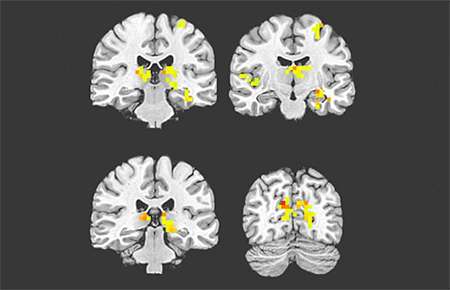
What are the types of dementias?

Dementia refers to global neurological decline in the brain function—with memory loss and mental disability—which can be due to a number of causes. This umbrella term is a symptom of disease and not a condition itself. Over 100 diseases can cause dementia, therefore, anybody experiencing it, needs extensive brain evaluation by a professional like Best Neurologist in Lahore.
What are the types of dementia?
Dementia is grouped by the commonality in pathophysiology. The types of dementia are as follows:
Alzheimer’s disease: is a progressive and most common type of dementia. About 60 to 80 percent of dementias are attributed to Alzheimer’s. It is believed to be hereditary in nature, with mutation of three involved genes. These genes encode proteins called beta-amyloids and tau protein; the latter produce neurofibrillary tangles, while the former produce protein plaques. Healthy neurons are damaged by overproduction of these proteins, with irreversible and irreparable damage.
Early stages of Alzheimer’s are marked by mild forgetfulness, followed by short term memory loss, inability to be coherent and problems with remembering pathways to familiar places. Depression is not a part of Alzheimer’s, yet the patient can exhibit signs of it in the early stages of disease. Many adults with depression are misdiagnosed as having Alzheimer’s.
Vascular dementia: as the name implies, this second most common type of dementia is due to diminished blood flow to the neurons. Sometimes, this dementia occurs after stroke or mini-strokes that cause bleeding in the brain. The symptoms of this type of dementia depend on the part of the brain that is affected by the vascular damage. Personality, reasoning, thinking, all can be impacted. Cognitive changes appear suddenly, and are the most prominent feature of vascular dementia. Timely treatment and medication can slow down the onset of this dementia.
Frontotemporal dementia: is when the frontal and the temporal parts of the brain are impacted by the disease. These are the regions of the brain that control personality, language and behavior. As a result, the patient exhibits bold and compulsive behavior, with lack of inhibition and motivation. This type of dementia makes communication difficult for the patient, with both difficulty in speaking and comprehending language.
Lewy body dementia: is the result of microscopic abnormal deposits in the brain that cause neuronal damage over time. Lewy bodies also form in other disorders of the brain like Parkinson’s disease and Alzheimer’s.
Lewy body dementia is a progressive disease that presents with visual hallucinations, decreased memory and attention span, slowed movements, uncoordinated gait, tremors, and changes in reasoning and thinking ability.
Other disorders that are linked with dementia but not solely so, include Huntington’s disease, Creutzfeldt-Jakob disease, Parkinson’s disease and traumatic brain injury.
What are the risk factors of dementia?
Age: People above the age of 65 are most at risk of neuronal diseases like dementia. However, this is not always a rule. Sometimes dementia can also occur in younger individuals, especially in hereditary cases.
Down’s Syndrome: trisomy 21 has three copies of the chromosome 21, which may be associated with Alzheimer’s disease. Therefore, individuals with Down’s are more likely to present with dementia.
Positive family history: many causes of dementia are due to inherited mutations. Thus, anyone with a positive family history of dementia should get regular examinations with an experienced neurologist like Best Neurologist in Karachi.
